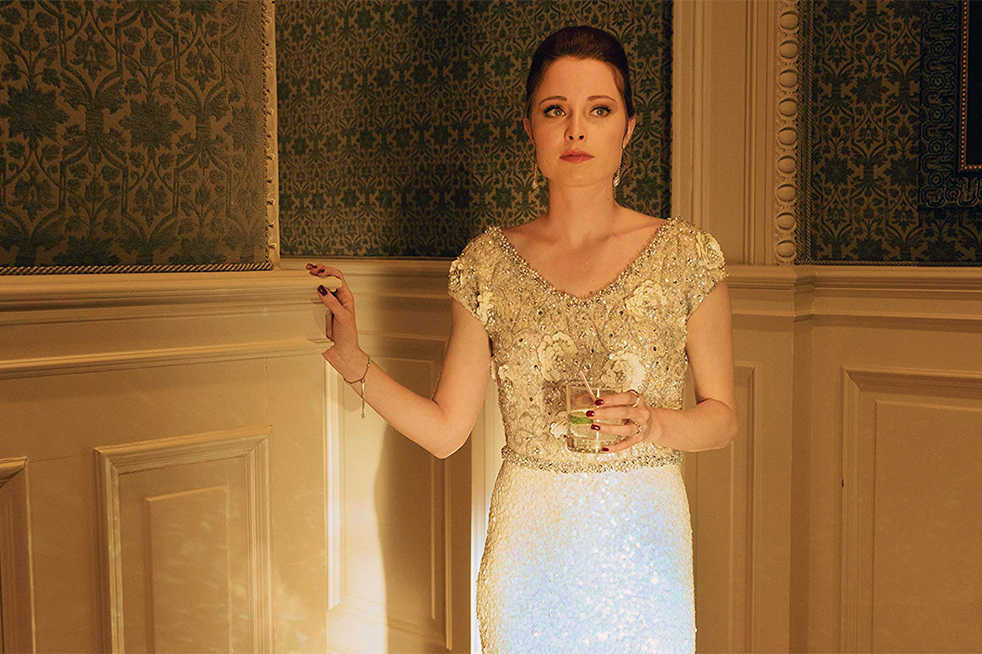USA’s new series “The Purge” asks the question of what would happen if all crime were legal for one night of each year. The idea seemed thought provoking in 2013, and creator James DeMonaco’s original film, “The Purge,” was certainly controversial, but five years and four identical sequels later, viewers are bored. USA’s new installment in this franchise could have brought a new perspective to the table, but instead rehashes the same content.
All installments of the franchise are set in an alternate United States where a political party dubbed the New Founding Fathers of America (NFFA) has control of the government. Part of NFFA policy is an annual national ‘holiday,’ the Purge, where for 12 hours all crime is legal. As expected during this holiday, the United States is in turmoil. Citizens have the option to purge, and wreak havoc, murder, steal, commit arson, or to barricade their homes and hope that their families make it through the night.
The franchise was created with the intention of providing social commentary on America, and while hints of criticism of politics, violence, and human nature are evident, none of the movies have succeeded in making any great points.
Airing Tuesdays at 10pm on USA Network, this television series further explores the world created by its predecessors. Episode one, “What is America?”, introduces viewers to the five main characters and sets up the gruesome events that are sure to come in later episodes. Miguel (Gabriel Chavarria, “East Los High”) is a recently returned Marine on a mission to locate his estranged sister. Penelope (Jessica Garza, “Six”), Miguel’s sister, is a member of a religious cult who worship the Purge and sacrifice themselves to help purgers vent.
Jenna (Hannah Anderson, “Jigsaw”) and Rick (Colin Woodell, “Unsane”), a couple introduced as anti-Purge, are entrepreneurs attending an elite NFFA party to secure funding for their business. Lastly, Jane (Amanda Warren, “The Leftovers”) is a finance professional who is securing a deal with Japanese clients who must work through the overnight holiday from her office.
Technically, the show is clunky. Viewers are thrown from plot to plot, switching character point of view far too many times. The script is the embodiment of telling instead of showing. The dialogue is awkward, and all the interactions seem forced.
The acting is not bad, but it certainly does not draw the viewer to the characters. For a thriller to have dramatic weight, the audience has to actually care about the survival and welfare of the characters, a feat this show makes difficult. “The Purge” does not achieve that kind of connection, the characters seem shallow and so the viewer feels indifferent.
Another issue with the show is that four stories are packed into an hour of television and cover only the 97 minutes prior to the Purge. The episode is simultaneously bloated and boring. So much happens during that hour and a half, and yet it seems nearly nothing is of note. Future episodes may be more engaging- time will tell- but an entire series of television covering only 12 hours of story seems disproportionate.
One positive is that the show throws in news clips and radio broadcasts that make this version of America seem more realistic. These touches of realism are one of the best features in the pilot. The most jarring of these clips feature average Americans boarding up their own homes with flimsy sheets of plywood and drills.
Realistically, most Americans would self-prep for the Purge and hope that it was enough to protect their families. The fact that this series only glazes over this struggle is a real missed opportunity. Instead we focus on the boring story of a rich, young couple as they attend a safe and lavish party. All the while their home is secured behind huge metal doors, locked with the touch of a finger through an app. Had the show been focused on everyday Americans coping with the holiday, any social commentary would have been a lot more poignant.
It is this disconnect where “The Purge” loses meaning most. Despite touting a supposed message of the rich versus the masses, the show is tone deaf as to who really makes up the masses. As in its predecessors, the series seems to attempt to comment on politics, american society, violence, and human nature.
The end product, however, misses the mark. The franchise remains a solid source of violent action devoid of emotional, visual or plot substance, but the new installment offers nothing which the movies did not.
There is no doubt that this TV series is not the last viewers will see of this franchise, however. If “The Purge” manages to convey any message, it is that violence always ensures profit.
